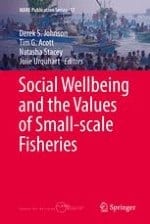Risk, Reciprocity and Solidarity

The Moral Economy of Fishing in Trincomalee, Sri Lanka. In Johnson, D., Acott, T., Stacey, N., Urquhart, J. (eds.) Social Wellbeing and Values of Small Scale Fisheries, Springer. August 2017
Description
“This study explores the role of religious values at the individual and community levels in relation to the moral economy of fishing in Sri Lanka. Comparing daily interactions among Sinhala Buddhist, Tamil Hindu and Muslim fishers in the eastern coastal district of Trincomalee, this chapter explores how fishers choose and mix different value systems to justify various decisions and behaviours. Both religious and fishing motivations are examined. Our findings indicate that people take advantage of the malleable nature of seemingly static religious doctrine to mix, match and choose from different religions to suit the current need and the occasion. Religious beliefs and ideologies also create and sustain socio-political differences, which are further constructed by macro-level political discourses. This chapter also analyses how discourses on religious identity play out in everyday life and how economic rivalries over fishing resources spill over into—or are reinforced by—religious and ethnic tensions in the post-war context. In terms of fisheries governance, the analysis shows that managers need to recognise and understand the role of religion and value systems in shaping the moral economy of fishing, as well as the processes by which religious beliefs and ideology can create and sustain social cleavages”